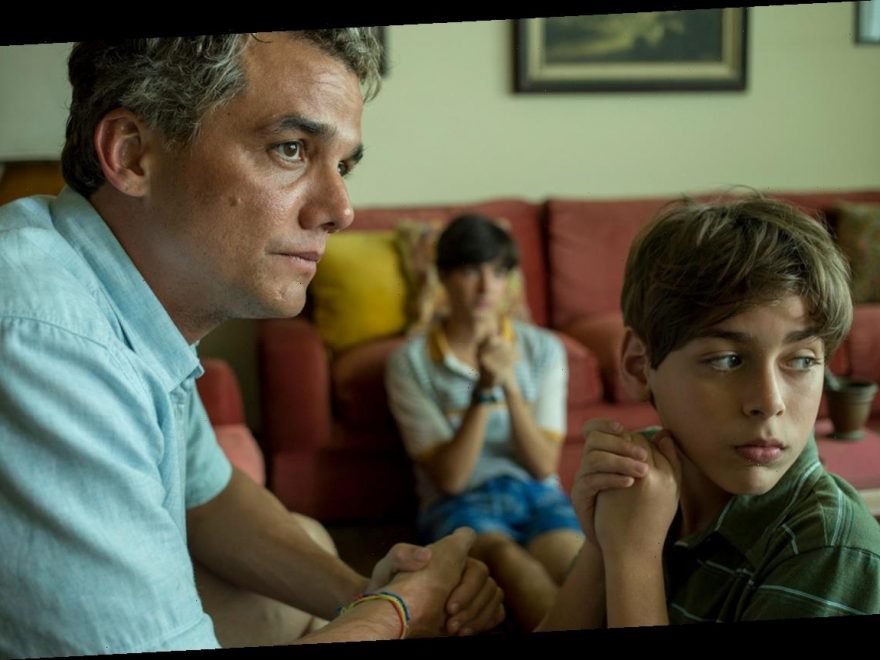If a movie about geopolitics centered around the true story of “Sergio” Vieira de Mello, a United Nations diplomat from Brazil, doesn’t strike you as must-viewing during a pandemic, you couldn’t be more wrong. What better time to celebrate a man who put human rights above politics as usual? Sergio, a Sundance sleeper debuting on Netflix on April 17th, is history brought to life, with a few extra bells, whistles and caveats. Director Greg Barker, working from a frustratingly soft script by Craig Borten, takes dramatic license with his own 2009 documentary on Vieira de Mello (everyone calls him Sergio, so we will too). No matter. Barker’s dips into hagiography and romantic sentiment don’t deter his goal to dig deeper into the psyche of this trouble-shooting martyr for world peace. A journalist once described Sergio as “a cross between James Bond and Bobby Kennedy.” Exactly.
As played with charismatic intelligence and warm wit by Wagner Moura (justly acclaimed for his role as drug kingpin Pablo Escobar on the first two seasons of Narcos), Sergio emerges as the U.N.’s go-to guy, a peacemaker who did negotiate with terrorists if he thought it necessary. He also reveled in getting his hands dirty by working in the field, and bristled at suggestions that he was a cover for U.S. global policies. We’re introduced to the man, then the U.N. High Commissioner for Human Rights, as he lays dying amid the rubble after the 2003 bombing of the U.N. headquarters in Baghdad at the order of al Qaeda supervillain Abu Musab al-Zarqawi. Along with his refugee expert and irreverent sparring partner Gil Loescher (Brian F. O’Byrne), Sergio had been sent there to broker peace talks and legal elections in Iraq. Conflicts soon ensued with hawkish Presidential Envoy and Donald Rumsfeld acolyte Paul Bremer (a flinty Bradley Whitford). The film then uses the hokey device of having Sergio review his life in flashes as two ill-equipped American soldiers, played by Garret Dillahunt and Will Dalton, futilely attempt to dig him out of tons of brick and concrete.
It’s quite a life, as we follow Sergio through stints that test his mettle in Cambodia, East Timor, Indonesia and, finally, Iraq. These feats of diplomatic virtuosity, widely heralded for their blend of idealism and pragmatism, are interrupted by Barker’s dramatization of the married Sergio’s torrid love affair with Argentinian-Italian U.N. economic adviser Carolina Larriera. She’s beautifully played by Ana de Armas, Maura’s costar in Olivier Assayas’ thriller Wasp Network; the two meet during negotiations to prepare East Timor for independence after it broke from Indonesia. The mutual attraction is immediate, and while the film dances around (but does not ignore) the existence of Sergio’s French wife, Annie, and their two sons, there’s never a doubt that Carolina — whom the peacekeeper lived with in Paris — is his soulmate.
For some viewers, Sergio’s romance with Carolina, who survived the blast that ended his life, trivializes the value of his diplomatic accomplishments. What’s love got to do with a man mentioned in some circles as a suitable candidate for U.N. Secretary-General? Quite a lot, according to the movie. And thanks to the vibrant, lived-in performances of Maura and de Armas, you may be inclined to agree. Why remove sexuality, doubt and compromise in a world that needs heroes who live with us down here on the ground? Sergio is not a film about a saint or a sinner, but an attempt that succeeds more often than not to create a portrait of a man in full. Yes, it also occasionally puts him on a pedestal — but in these dark days, advocating for hope and idealism feels exactly right.
Popular on Rolling Stone
Source: Read Full Article
